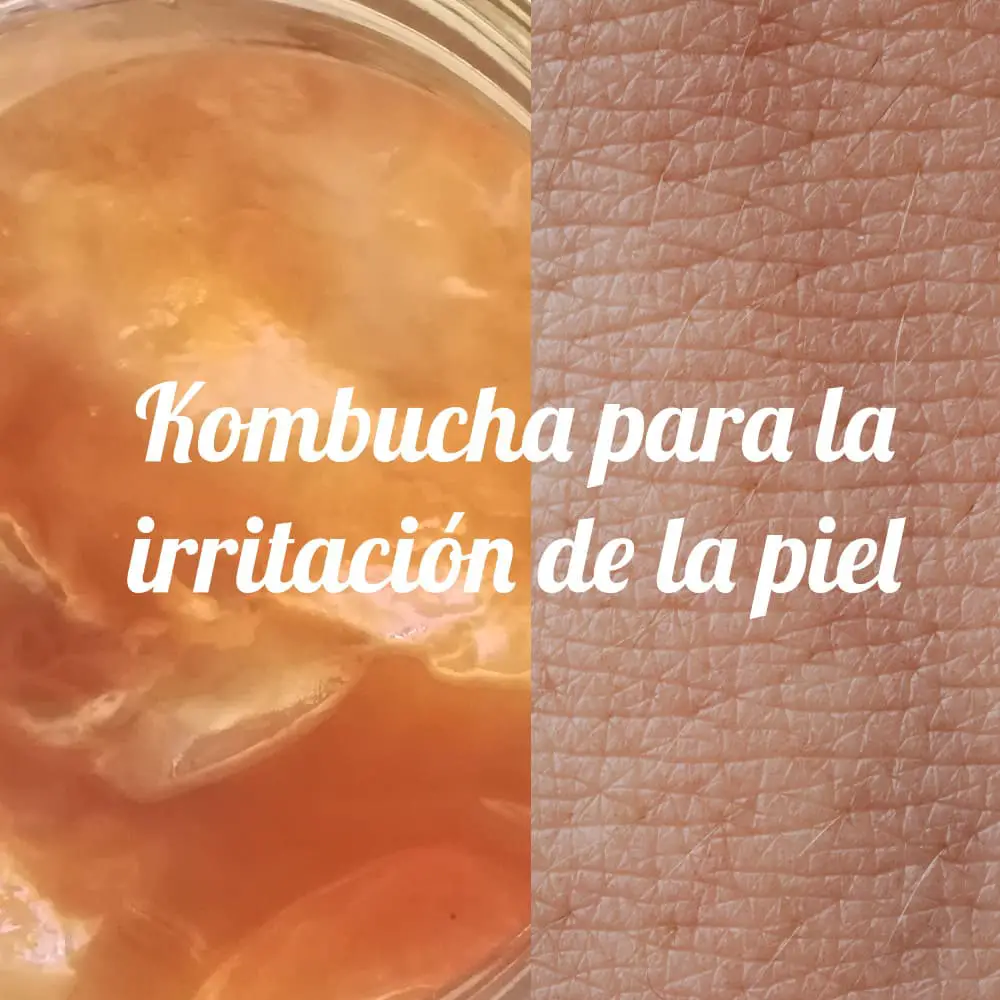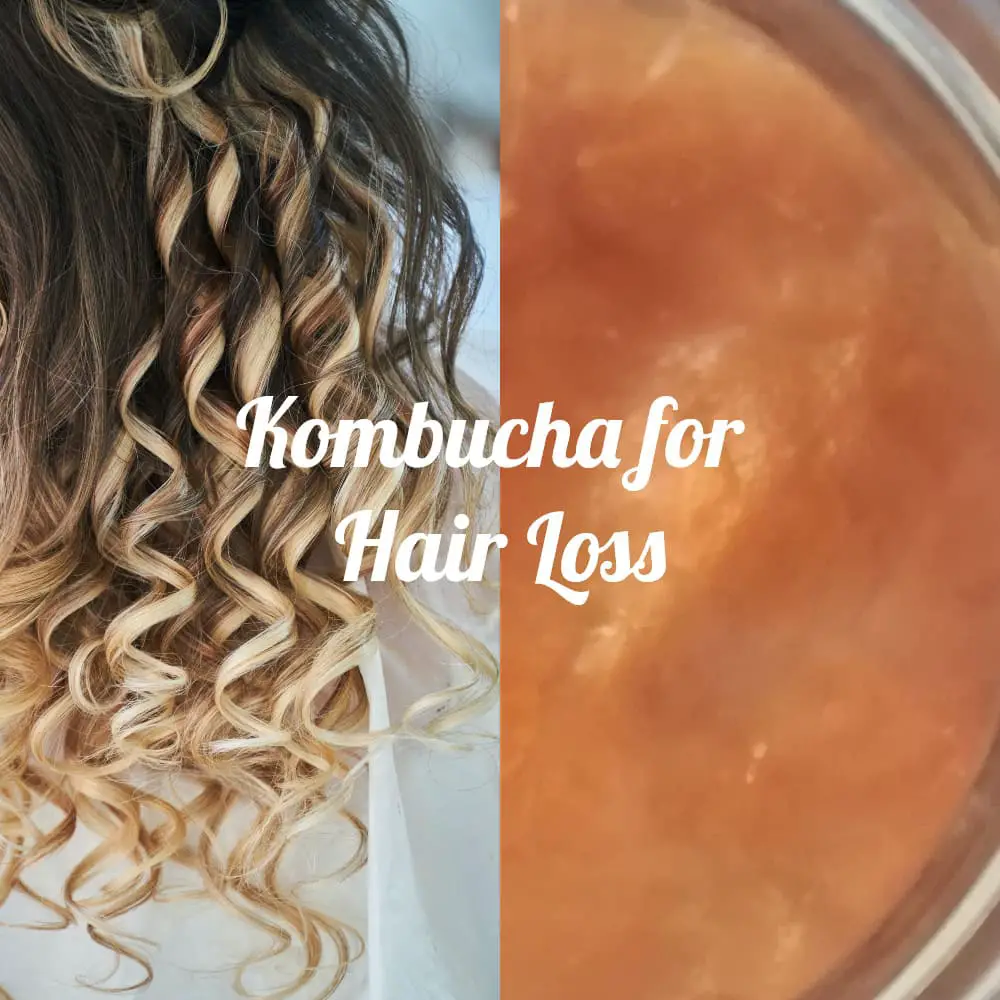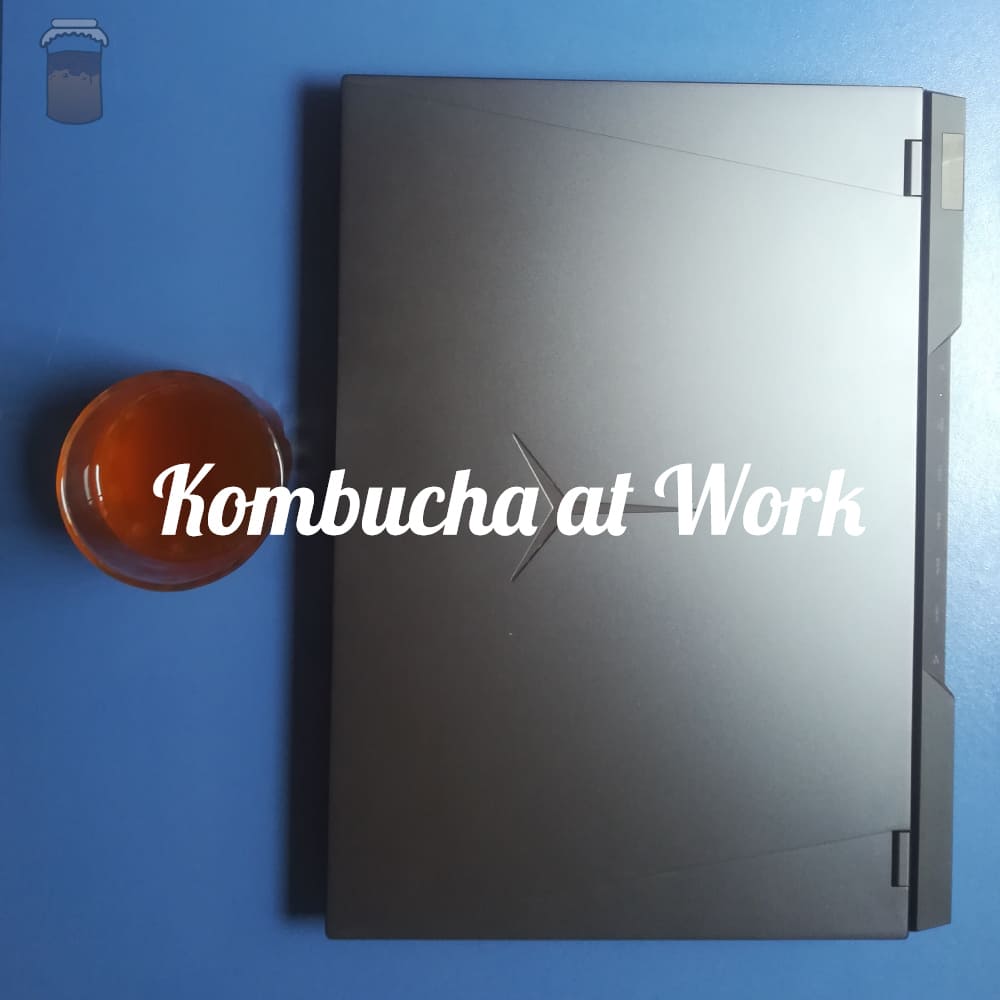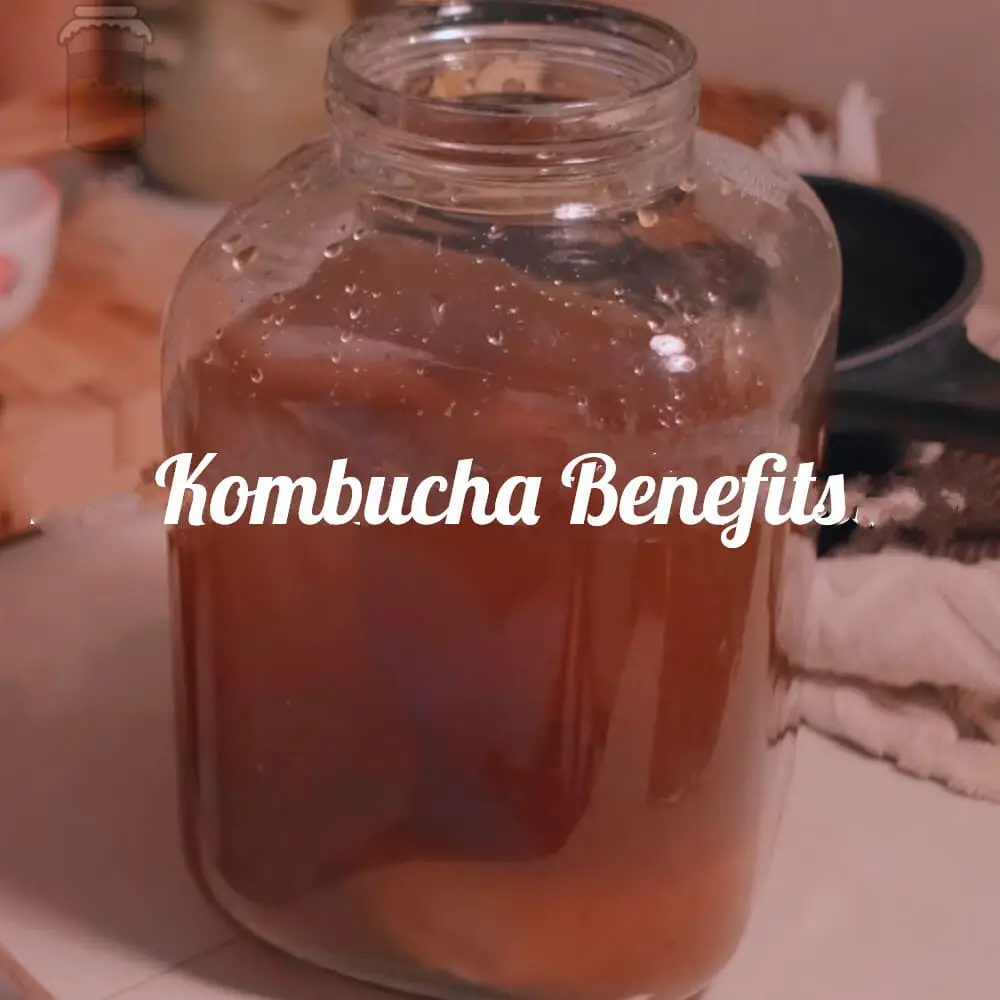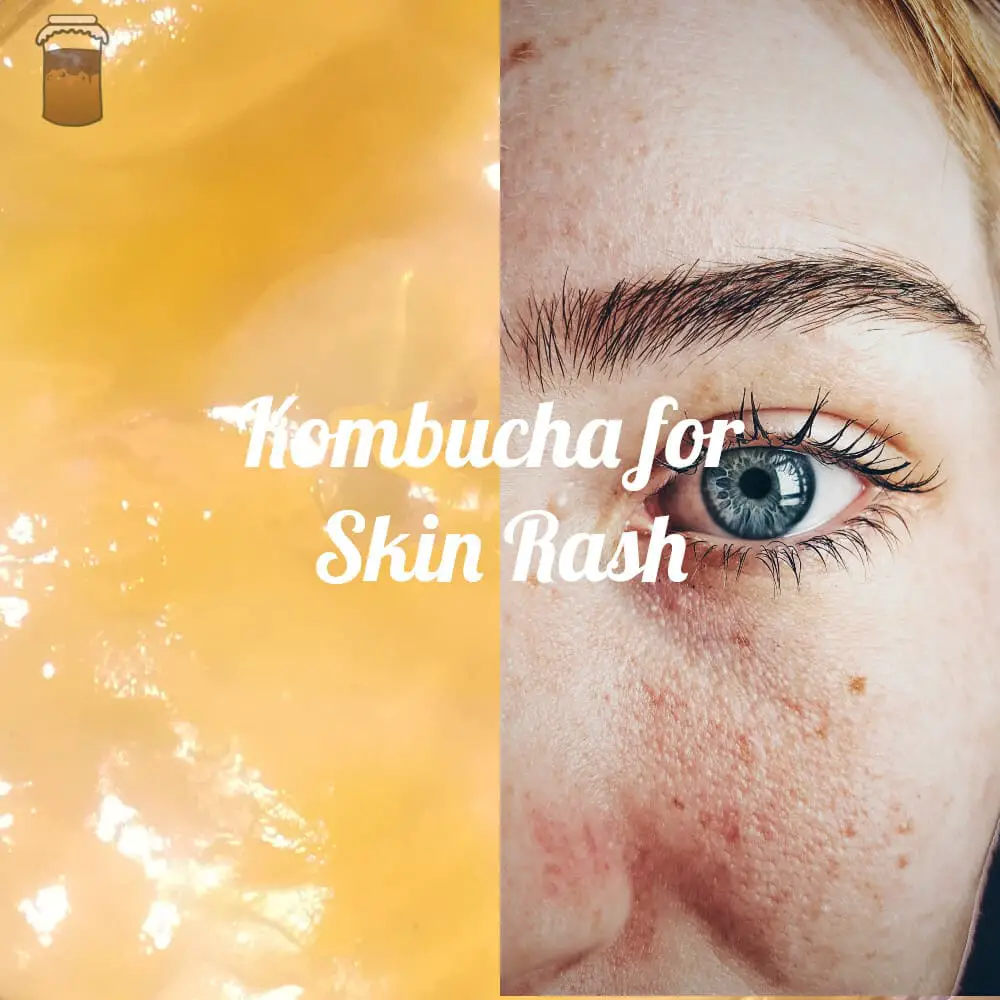
Despite being an excellent source of nutrients, kombucha is not exempt from side effects that can be disease-causing, where skin rash has been in the foreground. Well, today we will dig on the possible effects of kombucha on skin rash.
When misapplied, either as a remedy or simply as part of the diet, it can generate allergic reactions in the body that have sometimes been reflected in the skin with dermatological damage, even worsening the injury that was supposed to be treated.
However, kombucha does not always generate these adverse effects. On the contrary, they are usually beneficial effects that help control infections and irritation and treat skin lesions.
It is also considered a possible anti-aging, healing, anti-inflammatory, and antifungal cosmetic with great acceptance by consumers who praise and defend these effects. [1] [2]
In fact, we have a recent article about how to use kombucha for hair loss, which may interest you.
Contents
Possible Causes of Skin rash When Consuming Kombucha
It is suspected that the irritation occurs by interference in the absorption of some nutrients generating a deficit that is subsequently reflected in irritating lesions on the skin or by contamination with fungi during the fermentation of the drink.
What the scientific evidence says is the report of some cases where some unfavorable effect on the skin, such as Jaundice or Pellagra, was detected after drinking kombucha. Still, it has been impossible to isolate kombucha as the cause since these people had other pre-existing deficiencies in their bodies.
For example, we found the case of a 25-year-old woman who presented with photosensitive dermatitis with painful erythema on the feet and skin involvement in contact with the sun after self-medicating with kombucha.
It turns out that this person had been diagnosed in advance with infectious mononucleosis, where he had lost 10kg of weight, developed amenorrhea, bilateral parotitis, and altered bowel habit.
Finally, this case concluded that the young woman developed pellagra from self-induced malnutrition and possibly reduced niacin absorption by using alternative remedies, including kombucha. [3]
Now, irritation can be part of an allergic reaction, and in the same way that you can be allergic to peanuts, but that does not mean peanuts are bad. A similar effect can occur with kombucha, which we will see in the next section.
Can any kombucha compound cause skin allergy?
A few cases of allergies to histamine, hyaluronic acid, vitamin B12, and acetic acid have been reported, causing redness and inflammation in the skin after consuming kombucha, only managing to reverse these symptoms after stopping its consumption.
Some people manifest dermatological conditions such as acne, atopic dermatitis, hyperpigmentation, or vitiligo caused by the deficit or excess of cobalamin (VB12) being more susceptible to those sensitive to the cobalt of the vitamin.
In other, more isolated cases, we have reactions to acetic acid with hives and generalized pruritus, and hyaluronic acid that can cause severe granulomatous allergic reactions that evolve into abscesses in a few people.
People who are histamine intolerant are the most susceptible to allergic reactions to kombucha. They have a deficit of diamine oxidase (DAO) of genetic origin, where even non-alcoholic kombucha with 0.5% alcohol can cause an allergic reaction with skin flushing, decreased blood pressure, increased skin temperature, etc.
Anti-irritation effect of kombucha
Kombucha has an antifungal activity that helps control infections that cause dermatitis, dandruff, inflammatory problems, itching, redness of the skin, etc. It can relieve and reverse these symptoms and prevent these infections by improving the health and radiance of the skin. [5] [6]
Strains typically found on healthy skin can become opportunistic pathogens under the right conditions, infecting and damaging dermal tissues. [6]
The ethyl acetate fraction of kombucha has a marked antifungal activity that helps control the growth of these pathogens and protect the body in cases of immunosuppression by strengthening the immune system, also preventing infection by these microorganisms. [5]
Kombucha can help with infections affecting the face, back, scalp, etc. This has attracted the attention of health professionals as a possible alternative for the control of fungal infections since the indicated medications have many side effects, and most of the time, they are usually contraindicated.
We have a fascinating article on the effects of kombucha on yeast infections, which may complement this lecture.
Is there any positive effect of kombucha on skin rash?
It has a lot of potential as a wound healer with rapid recovery and pain relief in wounds as it has antibiotic, detoxifying, anti-inflammatory capabilities and nutrient contribution for the restoration of tissues. In addition, it is pretty helpful as a treatment for various skin lesions also caused by some chronic diseases.
In experiments with mice, it was determined that, apart from the reasons mentioned above, it was also due to hyaluronic acid, which is fundamental in wound healing, decreasing the healing time in mice. In addition, the drink provides vitamin C, which increases the amount of collagen and promotes angiogenesis, which is essential to correct tissue damage. [7]
Kombucha had a beneficial effect in vitro on the healing of chronic ulcers such as venous, decubitus, or diabetic ulcers. It was also proven in tests with mice that its healing effects are similar to nitrofurazone ointment.
Therefore, its usefulness as a primary therapy in emergency departments is possible. However, more studies are needed to explain these effects better. [8]
Is it a good cosmetic for the skin?
It is currently being considered as a possible natural cosmetic capable of prolonging the youthful appearance when used as a topical supplement for the skin, offering many rejuvenating benefits thanks to its antioxidant, anti-inflammatory, anti-wrinkle, whitening, and anti-aging properties. [9]
Kombucha tea results in a potential treatment for skin maintenance. Some experiments in mice indicated an improvement in the thickness and flexibility of aging skin.
This is likely due to the flavonoids and energy-producing compounds contained in the drink, such as vitamin B3, which can stimulate collagen production and repair connective tissue in naturally aging skin. [9]
Even so, more research is still required to evaluate the possibilities of its use in the cosmetic industry. Still, the interest is very high due to all the benefits it can offer, either for its ability to produce collagen, its anti-aging properties, improvement of dermal hydration, and protection against the formation of spots on the skin.
Now that you know that kombucha can cause skin rash depending on the conditions for the growth of pathogens or simply by presenting an allergic reaction in some of its components, we suggest that you analyze it with your doctor based on your history, since although the cases are minimal, they exist.
Stay tuned for new posts with all the scientific research we can find regarding kombucha and fermented products.
References
[1] https://www.mdpi.com/1420-3049/25/22/5394/htm
[2] https://link.springer.com/article/10.1186/1746-1596-8-120
[3] https://onlinelibrary.wiley.com/doi/full/10.1046/j.1365-2133.2000.03822.x
[5] https://onlinelibrary.wiley.com/doi/10.1111/bjd.14501

